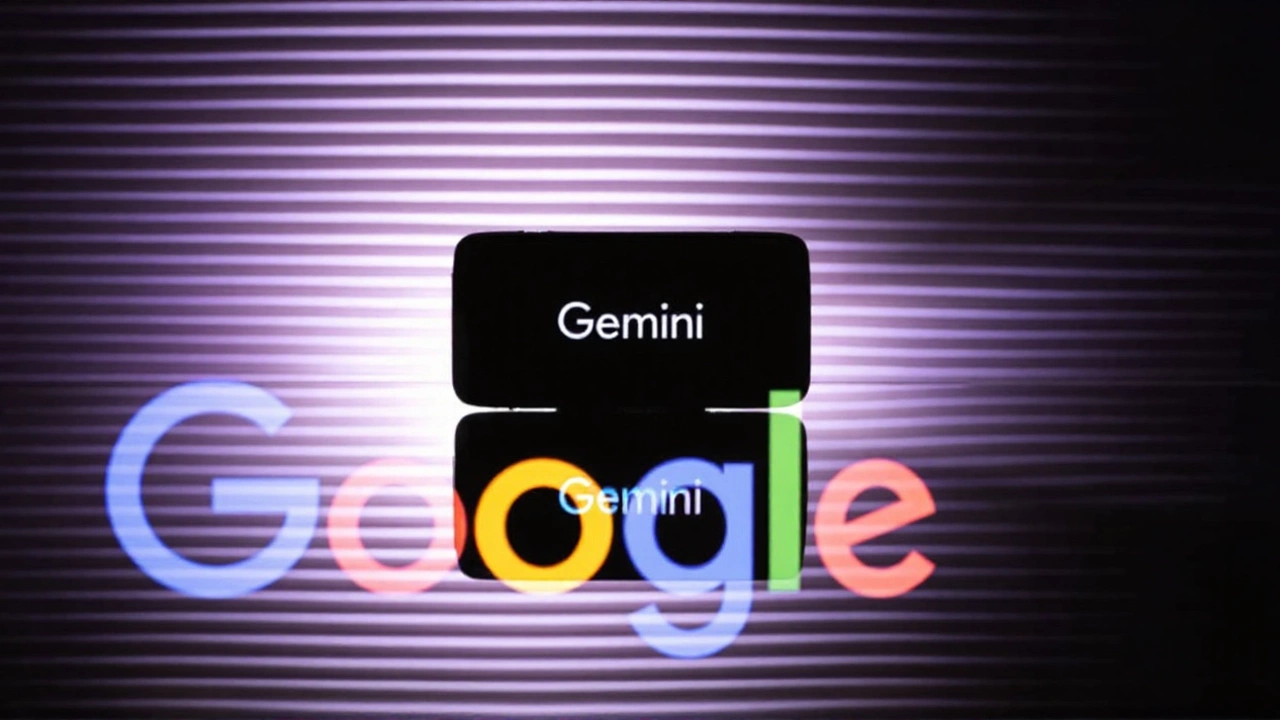Gemini hits No. 1: what’s behind the surge
Google Gemini just did something rare: it knocked ChatGPT off the top spot on the US Apple App Store’s free chart. That doesn’t happen by accident. App Store rankings are mostly about momentum—how quickly new downloads pile up and whether people stick around. Over the past few days, Gemini had both. The spark? A viral image editing feature that turned casual curiosity into a flood of installs.
Google marked the moment with a celebratory post, thanking users and nodding to the team behind the app. The company also teased more to come, which is exactly the kind of drumbeat you use when a feature is breaking through. The message landed as social feeds filled with before-and-after edits and mini-tutorials showing how fast the tool can punch up a photo.
There’s more to this than bragging rights. For months, ChatGPT has been the shorthand for consumer AI on mobile, with Microsoft’s Copilot and other challengers battling for a distant second. Gemini’s rise shows the race is still wide open when a product nails a specific, sticky use case. On iOS, the top of the free chart is a rotating stage—think of how a single viral effect can launch a camera app. This time it’s AI editing doing the heavy lifting.
The timing also helps. Users are getting comfortable with generative AI on their phones. They want tools that feel useful in seconds, not a science project. Image editing checks that box. It’s visual, instantly shareable, and easy to judge: did the picture get better or not? That clarity makes adoption faster than text-only chat tricks.

Why the image editor caught fire—and what it means
Gemini’s editor leans on the simple promise: tell it what you want changed, and it does the heavy work. Remove a crowd from a beach shot, smooth out a product photo, extend a background for a cleaner portrait, or re-style a sky with a moody sunset. The point isn’t pro-grade control; it’s speed. People can do a handful of edits in under a minute and post them right away. That’s a viral loop built into the tool.
What pushed it over the top was how approachable it felt. You don’t need to know layers, masks, or color curves. A basic prompt—“erase the sign,” “brighten the face,” “make it look vintage”—gets you close enough to share. Friends ask how you did it, they download the app, and the ranking climbs. It’s the same pattern that sent Lensa’s “Magic Avatars” to the charts in late 2022, only now the edits are more flexible and less gimmicky.
Real use cases popped up fast. Small sellers used it to clean up marketplace listings. Students touched up event photos. Travelers removed photobombers. Creators prototyped thumbnails. And yes, plenty of memes. The breadth matters because it spreads the tool across audiences who don’t think of themselves as “AI users.” They just want better pictures without spending an hour learning software.
There’s a flip side. Powerful image tools raise questions about trust and misuse. Photorealistic edits can blur what’s real in a way that’s fun for vacation photos and risky for anything newsy or sensitive. Google has typically added guardrails to consumer AI features, and users reported bumping into prompts the app won’t honor. That friction is deliberate. The industry is still figuring out how to balance creativity with integrity, and mobile apps have to get that right at scale.
Under the hood, the business math is straightforward. A viral, high-retention feature widens the top of the funnel. Once users are inside the app, Google can introduce them to broader chatbot features—summaries, drafting help, planning—and nudge them toward paid tiers that promise faster models or extra capabilities. OpenAI does a similar dance with ChatGPT Plus. The difference is which everyday habit hooks you first. For Gemini, image edits might be the gateway.
This moment also says something about where AI competition is headed on iOS. The winner isn’t just the best general-purpose chatbot; it’s the tool that solves a concrete problem and makes sharing the result irresistible. Expect rivals to answer with their own fast, consumer-friendly editing tricks. Microsoft has already pushed AI creation tools into Copilot. Smaller apps will chase niche angles—product photography, fashion try-ons, pet portraits—hoping to ride the next wave up the charts.
For Apple’s ecosystem, the shift is healthy and messy at the same time. Healthy because users get rapid innovation. Messy because policy, labeling, and safety debates are now playing out inside the most mainstream mobile apps. App Store leaders can change overnight when a feature takes off, but staying there is harder. Retention will be the real test: do users keep opening Gemini once the novelty fades?
Google clearly wants to make that answer yes. The company hinted at more updates, and the roadmap almost writes itself: faster edits, smarter scene understanding, cleaner object boundaries, smoother skin without uncanny results, maybe batch tools for creators. The sweet spot is utility without fuss, and the bar moves every week as models improve.
As of now, the scoreboard reads: Gemini at No. 1, ChatGPT bumped to the runner-up slot, and a fresh reminder that mobile AI is still in its early innings. One viral feature won the day. The next one could reshuffle the deck again.

